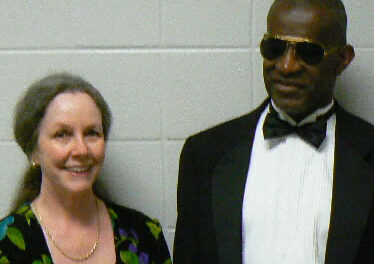Flying Machine Theatre Company will present All My Sons, an intense post-World War II domestic drama by premier American playwright Arthur Miller (The Crucible, Death of a Salesman), June 11-27 in the PSI Theatre at the Durham Arts Council. The play made its Broadway debut at the Coronet Theatre on January 29, 1947 and ran for 328 performances. Playwright Miller and director Elia Kazan won the 1947 Tony Awards® for Best Author and Best Direction.
The 1948 motion-picture version of All My Sons, written by Chester Erskine and directed by Irving Reis, was nominated for the 1949 Writers Guild of America award for the Best Written American Drama and The Robert Meltzer Award (Screenplay Dealing Most Ably with Problems of the American Scene).
“I probably read [All My Sons] in college,” says Flying Machine co-founder and artistic director Julian “J” Chachula, Jr., “but I couldn’t tell you exactly when. What I know is that this play has always resonated in me, and I’ve wanted to be involved in a production for a long time.
“The idea of doing it through Flying Machine has been banging around in my head for several years,” he explains. “But it’s got a bigger cast than we’re used to, and I thought it’d be too hard to find the right people, frankly. But my definition of ‘the right people’ has been evolving. I’m beginning to look beyond who looks ‘appropriate’ for the particular characters and put more weight on things like whether or not they feel drawn to the play, who’ll be open to a process-oriented rehearsal period, and who do I want to work with.”
When asked what he likes best about the play, Chachula responds, “[That’s a] tough question; there is so much I love about it. Currently, I’m loving Miller’s choice to show real compassion and understanding for his characters. Joe Keller has a line in the show: ‘Just try to see it human. See it human.’ Despite the heinous actions of some of the people in the story, Miller always shows compassion for them and challenges us to do the same.”
J Chachula claims, “The themes in this play are as timely now as they were when the play opened in 1947.” He says the plot centers around “Joe Keller (John Honeycutt) and his partner Steve Deever, [who] manufactured aircraft parts for the army during WW II. When 21 pilots died as a result of equipment failure, Joe and Steve were convicted of intentionally shipping out the faulty parts. In the appeal, Joe was exonerated while Steve remained in prison.”
Chachula adds, “Both men had sons fighting overseas. Steve’s kids, George (Joe Hyde) and Ann (Katie Poirier), disowned their father over the crime and moved away. Joe’s younger son Larry was reported missing and is presumed dead. His elder son Chris (Brian Berger) survived and joined his father in the business.
“The play begins,” Chachula says, “on a lazy Sunday morning three years later. Neighbors stroll in and out of the yard as we get to know Joe and his son, Chris’s close friend Dr Jim Bayliss (TJ Morris) and his wife, Sue (Betsy Walters), childhood friends Frank Lubey (David Davis) and his wife, Lydia (Janessa Baldina), and one of the neighborhood kids, Bert (Cooper Agar). Into this mix arrives Ann, who was Larry’s fiancée and whom Chris has invited back in order to propose marriage. His mother, Kate Keller (Mary Rowland), is opposed to the idea, since she still holds hope that Larry is alive. In the second act, we meet George, who has just seen his imprisoned father for the first time in three years.”
Chachula says, “The circumstances in the show are so extreme that it can be difficult for actors to really take on. It’s intense! It’s a tough show that asks a lot from everyone involved.”
Besides director J Chachula, the show’s production team includes set designer Matt Santelli; lighting designer Robert Stromberg; and costume designer Mary Rowland, who received help in creating the show’s 1940s fashions from Katie Poirier, Vicki Olson, and other cast members.
Chachula says the show is set in “the backyard of the Keller home, a wood frame house built in the 1920’s. It’s comfortable and secluded,” he explains.
J Chachula says, “The set is an awesome undertaking for a young designer who is also charged with building the thing in the few days the theater is available to us, not to mention designing it to be dismantled and reassembled not once but twice during the run, due to fact that two daytime events booked in the space need a clear stage.”
Flying Machine Theatre Company presents All My Sons Friday-Saturday, June 11-12, at 8 p.m.; Sunday, June 13, at 7 p.m.; Thursday-Saturday, June 17-19, 24-26, at 8 p.m.; and Sunday, June 20 and 27, at 7 p.m. in the PSI Theatre at the Durham Arts Council, 120 Morris St., Durham, North Carolina. $12 ($5 students with valid ID and $9 seniors), except June 11 (buy one ticket, get one free) and June 24: (pay what you can). 919/594-1140, flyingmachinetheatre@yahoo.com or http://www.etix.com/ticket/online/performanceSearch.jsp?performance_id=160338. Note: June 19 ticket buyers are invited to share dinner and drinks with the cast and crew (location TBA). Flying Machine Theatre Company: http://www.flyingmachine.dreamhost.com/productions/ams.html. Internet Broadway Database: http://www.ibdb.com/show.asp?ID=1455. Internet Movie Database (1948 Film): http://www.imdb.com/title/tt0040087/.











